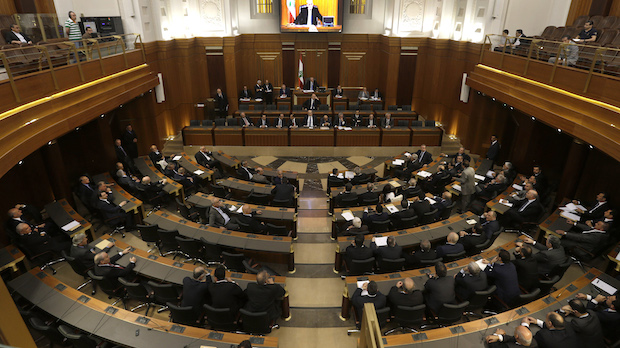What was impossible for a period of 11 months has become reality: the Lebanese government has been formed, on a political foundation and through the participation of most political parties in Lebanon. This is evidence of the transformations that have taken place and the new balances that have been struck in Lebanon and the wider region. But, ultimately, it is evidence of the various understandings reached between the various Lebanese parties that allowed it all to happen.
The question at issue here is the extent and seriousness of those understandings between the political forces in Lebanon. I believe they are temporary and do not amount to mutual understandings on all contentious matters& #8212;those may have to be shelved for discussion at the national dialogue later on.
It is important to recall that the initiative, launched through an accord reached between the President of the National Struggle Front parliamentary bloc, Walid Jumblatt, and Speaker of Parliament Nabih Berri was a result of the political crisis having reached a point that threatened internal stability and plunged the country into a great constitutional crisis. Issues that had for a long time impeded the formation of a government were conceded: Hezbollah relinquished its demand for veto power, and the Future Movement abandoned its refusal to serve with Hezbollah in the government. Paralleling this, a political debate touched on various issues, such as rotation among ministries, the ministerial policy statement, and the government gaining the confidence of the Parliament.
Throughout these discussions we have always felt a sense of gravitas among the parties. We were sure everyone was daunted by the challenge, fearing they would spark a constitutional crisis or political standoff that would threaten the unity of the country and harm relations between Lebanon’s various sects, especially given the current security climate. Moreover, suicide attacks have recently become more common, although they have subsequently been rejected by all sects and religious authorities.
Over the past few years, the situation has been characterized by a complete breakdown in communication and objectives between the parties. There is now direct communication between the parties and a keenness to preserve domestic stability. Meetings have taken place and understandings have been reached between the Free Patriotic Movement and the Future Movement, which overcame many obstacles to forming the government. There is also the Bkerké document, issued in early February, which forms the keystone of the efforts to consolidate the government and hold presidential elections. It emphasized the role of the state and its authority in various matters, defined the terms of Lebanon’s sovereignty and neutrality toward Syria, secured constitutional provisions in a timely manner, and protected the agreement made at Taif.
It is no exaggeration to say that the platforms of the various parties and political forces have evolved, and this prompted Hezbollah to continue its domestic partnership. The recent bombings cannot be addressed with the internal security forces Hezbollah attempted to use in some areas, without any results. Security cannot be ensured by confronting any one party, whether in Lebanon or beyond; neither can it be protected through the prosecutions carried out by any one party’s security services. Ensuring security must necessarily involve a comprehensive and national effort, where all parties unite under the political umbrella of the main leaders in the country. This is what prompted former Prime Minister Saad Al-Hariri to make the decision to engage politically with Hezbollah and separate the issue of the international trial of its members in connection with his father’s assassination from the issue of forming the government. That decision to cooperate was followed by his announcements rejecting extremism and insisting on the moderate approach, including supporting the government security forces in their work to combat the bombings.
But all of that failed to overshadow the ability of the Lebanese people to seize the regional and international moment and achieve a domestic settlement that led to the formation of a government. The settlement they have recently reached may be a temporary or interim one, but it is, of course, necessary in that it serves to pull the country away from the brink of civil war. It has proven Lebanon’s ability to manage its internal affairs by itself, without guardians or external intervention. In contrast to the failure of Geneva II and the continued escalation in Syria, the Lebanese settlement is striking. Lebanon has succeeded in extracting itself from the downward spiral of polarization.
The efforts launched by Walid Jumblatt have been embraced regionally and internationally. Jumblatt was keen on creating a regional safety net, and so he spoke to a number of Arab and Iranian officials in addition to international officials. He contacted these individuals discreetly and diplomatically, hoping to protect the stability of Lebanon and to ensure that the country was not dragged into internal strife.
Many understandings emerged as a result of what recently happened in Lebanon. Simply monopolizing power does not automatically ensure an ability to run the country; neither does surpassing the understandings already reached. The Lebanese people cannot achieve their interests by appealing abroad. If they seek assistance from without, they will find themselves in a standoff they cannot fight on their own.
The counterpoint to this article can be read here.
